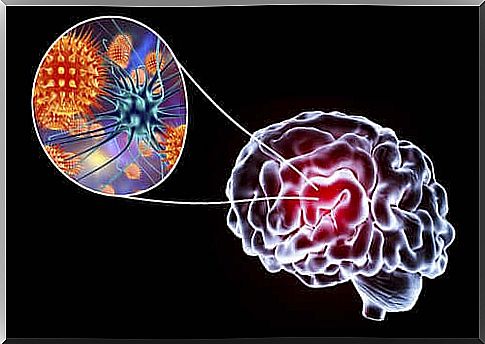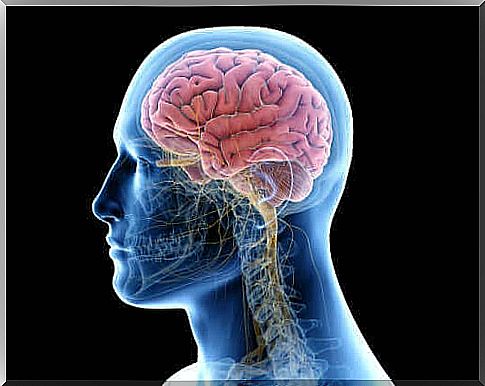Encephalitis: Symptoms, Causes And Treatment

Encephalitis is a disease that consists of inflammation of the brain. It is usually caused by a viral infection, although it can have many other causes. In most cases, it is actually a complication caused by infectious diseases.
Fortunately, encephalitis is not very common. In recent years, the number of cases has dropped significantly thanks to extensive vaccinations and official vaccination programs. Yet children are the part of the population most affected by this disease.
Experts estimate that there are between 5 and 10 cases per 100,000 children. Unfortunately, most of them take place during its first year of life. It is a complicated situation which endangers the person’s life.
Both the causes and the symptoms can be confusing and it is essential to detect it early to avoid serious consequences. For that reason, we will explain what encephalitis is, its causes, symptoms and treatment.
What is encephalitis?
As we have already mentioned, encephalitis is inflammation of brain tissue. It is a disorder that can have several causes, although the majority of cases are caused by a virus. However, it can also be caused by a bacterial infection.
When the infection takes place directly in the brain, it is called primary encephalitis. However, there may also be cases where the infection begins in another part of the body and then ends up affecting the brain via migration. It is secondary encephalitis.
In children , the viruses that most commonly cause it are measles, mumps and rubella. Fortunately, there are vaccines against these diseases. Other reasons are:
- Herpes: Herpes simplex, mononucleosis (kissing disease) or varicella (chickenpox) can cause it.
- Rabies: This is usually transmitted through an animal bite.
- Enterovirus: Such as polio.
- Bacterial meningitis: If not treated properly.
- Parasites.
It is important to emphasize that encephalitis is not in itself a contagious disease. However, it is often caused by a contagious disease. As we mentioned earlier, it can also be the result of other disorders such as cancer.

What are the symptoms of encephalitis?
If you keep in mind that the majority of cases are caused by a virus, the first symptoms can be varied and vague. For example , a typical case will show fatigue, muscle aches and headaches. In addition, it usually causes fever.
As the disorder progresses, the symptoms usually become more intense. One can experience seizures, unconsciousness and even difficulty speaking. In addition, many people lose sensation in parts of their body.
In the case of babies, it can be very difficult to notice the symptoms. Children usually show irritability, vomiting or not eating properly. In the most serious cases, it can lead to coma. If left untreated, encephalitis leads to death.

How to treat encephalitis?
To diagnose this disease , doctors need to perform various tests and studies. First, they must perform a blood test and urine test. This allows them to focus their diagnosis and understand the possible causes.
Usually, they perform an MRI scan or a CT scan to observe the brain. In some cases, they need to perform a lumbar puncture. During this test, they drain a little cerebrospinal fluid, which can confirm the cause when analyzed in a laboratory.
To treat encephalitis, the first thing to do is to keep the patient stable and resting. Treatment includes painkillers such as paracetamol and non-steroidal anti-inflammatory drugs (NSAIDs).
What to do if you have symptoms of it?
Although difficult to diagnose in children, some signs may be suspicious. In adults, one will notice an intense headache and fever in addition to some changes in the cognitive functions.
There are some viruses that cause encephalitis where there is a specific treatment. However, this is not always the case. It is very important when you face any symptoms of this disorder that you go to the doctor. Encephalitis can endanger the patient’s life.









